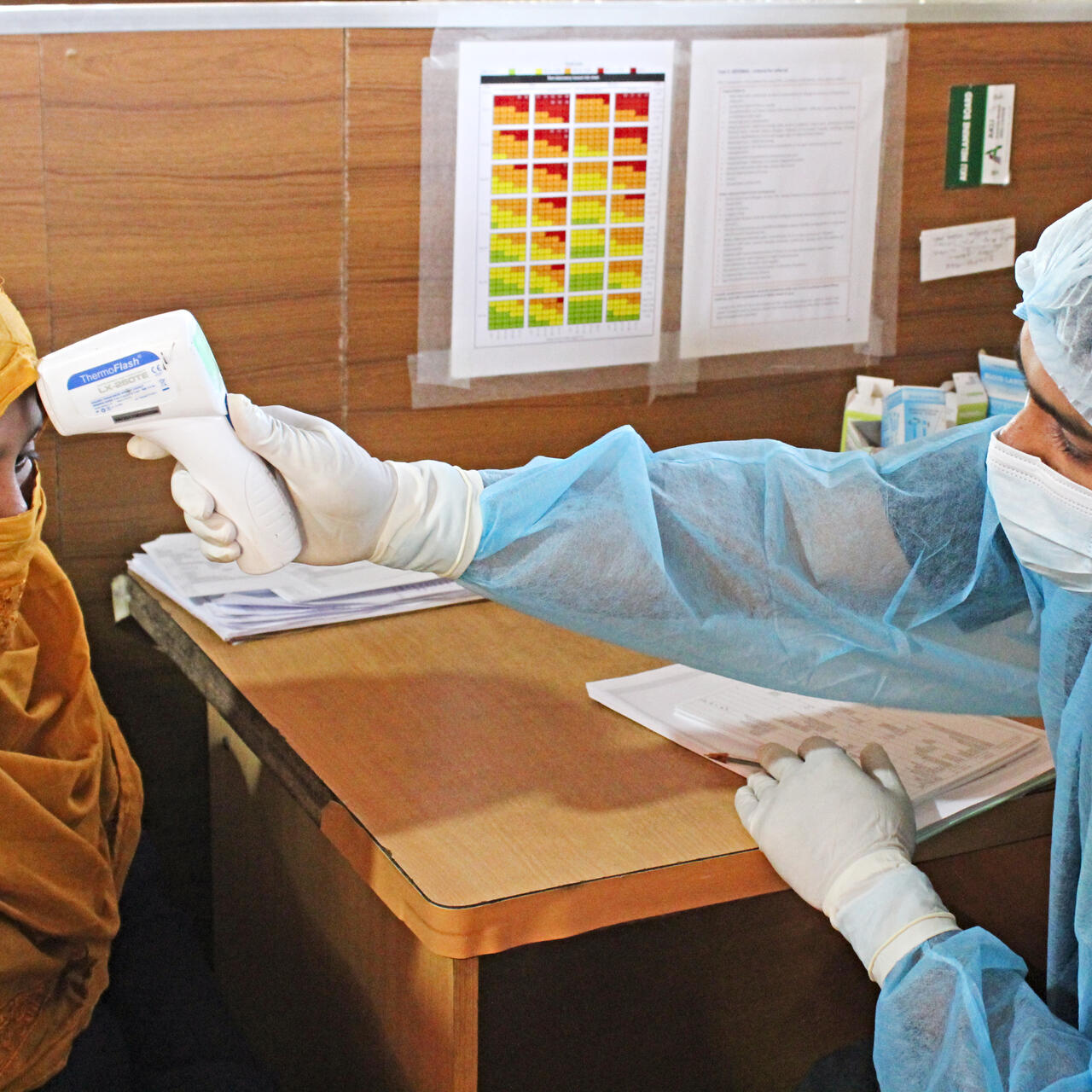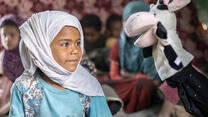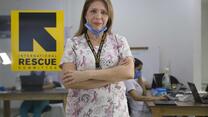As the world struggles to deal with the fallout of the COVID-19 pandemic, the needs of the most vulnerable must not be neglected or forgotten. "The Coronavirus is not just a problem for rich countries: we are only as strong as our weakest health system," says IRC president and CEO David Miliband. Learn more about the coronavirus and the IRC's global response.
The novel (new) coronavirus, or COVID-19, is a virus that causes flu-like illness and can spread from person to person. It was first discovered in December 2019 in a seafood market in Wuhan, China. COVID-19 is in the same virus family as SARS and MERS.
As COVID-19 spreads globally, people living in conflict zones will be hit hardest. In countries like Syria, Yemen, Afghanistan and Iraq, years of violent conflict have weakened health systems and shut down medical facilities, putting millions of people at increased risk.
Refugees and recently displaced people also tend to have a higher rate of underlying health issues due to the impacts of war, disease and famine, making them more susceptible to illness.
In addition, IRC analysis reveals people living in refugee camps in Syria, Greece and Bangladesh face a heightened risk of COVID-19 owing to conditions that are even more cramped and densely populated than those onboard the Diamond Princess—the cruise ship where the virus spread four times faster than in Wuhan at the peak of that city’s coronavirus outbreak.
“Refugees do not have the luxury of social distancing,” says Bob Kitchen, who is leading the IRC's COVID-19 response. “But we can promote safety in camps by increasing the supply of fresh water, and the number of hand-washing stations, infection control points and public health communications. This is where the IRC comes in.”
The IRC has launched a global response to the coronavirus pandemic, with a focus on reaching the most vulnerable people where we work.
For our country programmes and offices across the world, we have created a real-time risk categorisation index and response plan. This is paired with ongoing efforts to keep staff and communities safe with the proper knowledge and supplies while delivering lifesaving care.
These are just a few of the things the IRC is doing to respond to COVID-19:
- Continuing to provide essential health care services to refugees and displaced people
- Sharing vital coronavirus information with refugees through our "SignPost" online platforms that can be accessed on a mobile phone
- Conducting information sessions to demonstrate best practices in hygiene, handwashing, communicating symptoms, when to go to report to medical personnel, and when to self-isolate
- Demonstrating proper handwashing techniques and other ways people can protect themselves
- Training health workers on how to use personal protective equipment to keep themselves safe
- Delivering food and medicine to refugees while following heightened safety measures
- Setting up a health call centre for refugees run by doctors and nurses
- Installing more hand-washing stations in shelters for migrants
- Equipping aid workers with surgical face masks and other essential protective equipment
- Printing, translating into multiple languages, and distribute informational materials approved by the World Health Organization and national health authorities to communities worldwide
- Building the health capacities of local aid organisations through our COVID-19 Risk and Response plan and staff health experts
- Sharing our COVID-19 Risk and Response plan with other aid organisations that might not have health experts available
- Distributing health and hygiene kits for families at higher risk
The IRC has launched a global response to the coronavirus pandemic, with a focus on reaching the most vulnerable people where we work.
For our country programmes and offices across the world, we have created a real-time risk categorisation index and response plan. This is paired with ongoing efforts to keep staff and communities safe with the proper knowledge and supplies while delivering lifesaving care.
These are just a few of the things the IRC is doing to respond to COVID-19:
- Continuing to provide essential health care services to refugees and displaced people
- Sharing vital coronavirus information with refugees through our "SignPost" online platforms that can be accessed on a mobile phone
- Conducting information sessions to demonstrate best practices in hygiene, handwashing, communicating symptoms, when to go to report to medical personnel, and when to self-isolate
- Demonstrating proper handwashing techniques and other ways people can protect themselves
- Training health workers on how to use personal protective equipment to keep themselves safe
- Delivering food and medicine to refugees while following heightened safety measures
- Setting up a health call centre for refugees run by doctors and nurses
- Installing more hand-washing stations in shelters for migrants
- Equipping aid workers with surgical face masks and other essential protective equipment
- Printing, translating into multiple languages, and distribute informational materials approved by the World Health Organization and national health authorities to communities worldwide
- Building the health capacities of local aid organisations through our COVID-19 Risk and Response plan and staff health experts
- Sharing our COVID-19 Risk and Response plan with other aid organisations that might not have health experts available
- Distributing health and hygiene kits for families at higher risk
The IRC urgently needs funding and support for our scaled-up response. “Our teams are doing an amazing job – but they need to do an even bigger job,” says IRC president and CEO David Miliband. “And for that, we need your help.”
Help us reach families in coronavirus-affected areas and more than 40 countries worldwide by making a donation.
Countries in crisis need immediate international assistance, including supplies for detecting, preventing and treating the coronavirus. This will become increasingly difficult as governments continue to close borders and restrict travel to mitigate the spread of the disease.
The IRC urgently needs funding and support for our scaled-up response. “Our teams are doing an amazing job – but they need to do an even bigger job,” says IRC president and CEO David Miliband. “And for that, we need your help.”
Help us reach families in coronavirus-affected areas and more than 40 countries worldwide by making a donation.
People living in countries where conflict and crisis have weakened health systems and shut down medical facilities are at increased risk from COVID-19.
11
Rising violence in the West African nation has uprooted nearly 500,000 people from their homes. Now the country is threatened by COVID-19.
ventilators are available for Burkina Faso's population of 20.9 million.
Learn more about Burkina Faso9
years of conflict in Syria have left the country's health system in ruins.
9 years of conflict in Syria have left the country's health system in ruins.
With the coronavirus now having been confirmed in Syria, the IRC is warning that it could soon become one of the most severe outbreaks in the world.
1/2
of Venezuela's doctors have left the country because of humanitarian crisis.
1/2
of Venezuela's doctors have left the country because of humanitarian crisis.
Over 4 million Venezuelans have left the country since 2015, according to the United Nations. Among them are 1.5 million who crossed into Colombia.





